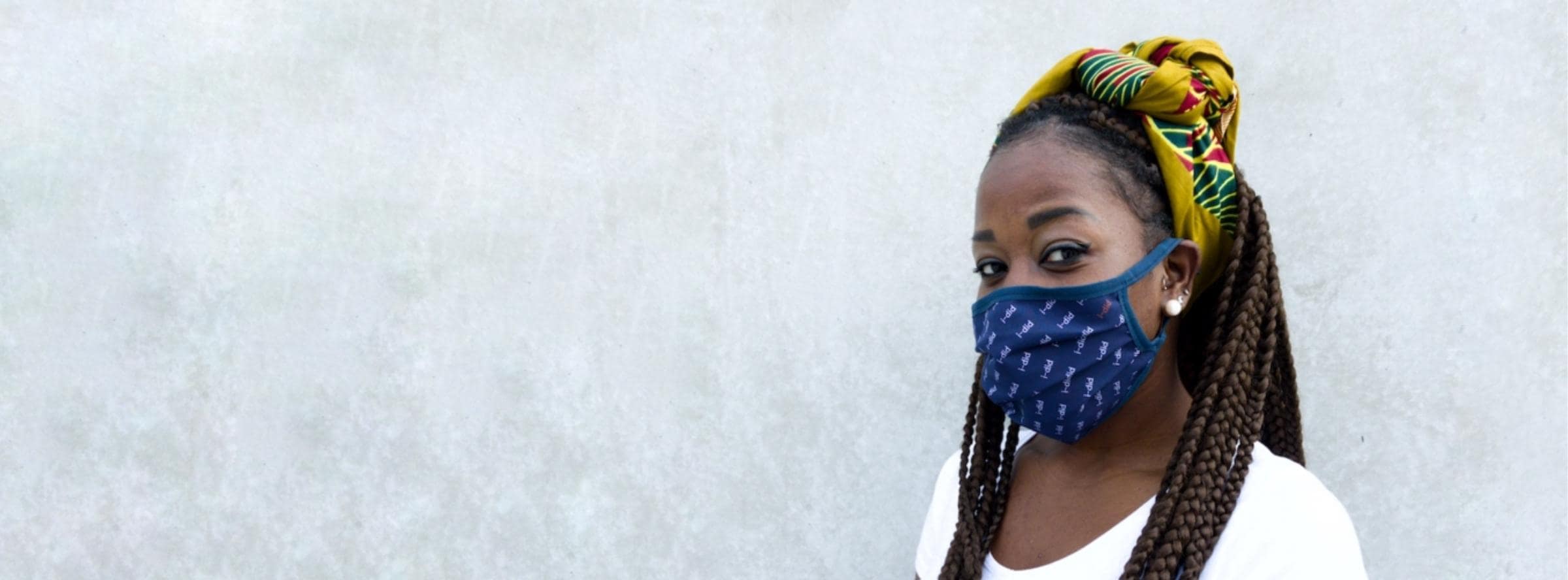Netherlands | Social entrepreneurship
Who’s hiding behind your mask?
You, of course, but also whoever made it. At our partners Vanhulley, Fraenck and i-did, that would be people who would otherwise have trouble finding employment.

Face masks by Vanhulley
The Vanhulley sewing workshop in Groningen is filled with women and sewing machines. These women are eager to work, but they have poor employment prospects due to their lack of educational qualifications. Normally the women would be sewing boxer shorts, beach shorts, pajamas and clothing for infants – all made from recycled dress shirts and leftover scraps of fabric. But today they’re sewing non-medical face masks made of new cotton cloth. In addition to gaining work experience, the women at Vanhulley are also attending a one-year vocational training course. That’s how your face mask becomes a step towards a job, internship or continued education.
Face masks by Fraenck
At Fraenck in Arnhem, people with fewer job opportunities, like refugees, make needed non-medical face masks at their location near Arnhem Centraal station, which just so happens to be a place where travelers are required to wear a face mask. Fashion designer Ratna Ho and product developer Pascal Mulder usually design and make handbags made from scraps from the production of sails and artificial leather goods. Their face masks, however, are made from ordinary cotton. At their website, Ho and Mulder give instructions on the proper way to wear their face masks.
Face masks by i-did
In Utrecht and The Hague, those turning scrap textiles into non-medical face masks are people who have extremely poor employment prospects. Some of them haven’t had a job in a very long time, while others have never worked at all. I-did has already guided 70 percent of them to paid employment. The social enterprise is known for its felt accessories: bags, laptop covers and telephone protectors available from retailers such as IKEA. The employees make the felt from discarded clothing and scrap textiles obtained from companies and private individuals. I-did’s face mask, however, is made of unused fabric.
Making a difference - with style! Made with love by people who have trouble finding paid employment: the face masks by Fraenck, i-did and Vanhulley. Order your face masks by the social enterprises. You can find the links in the article.